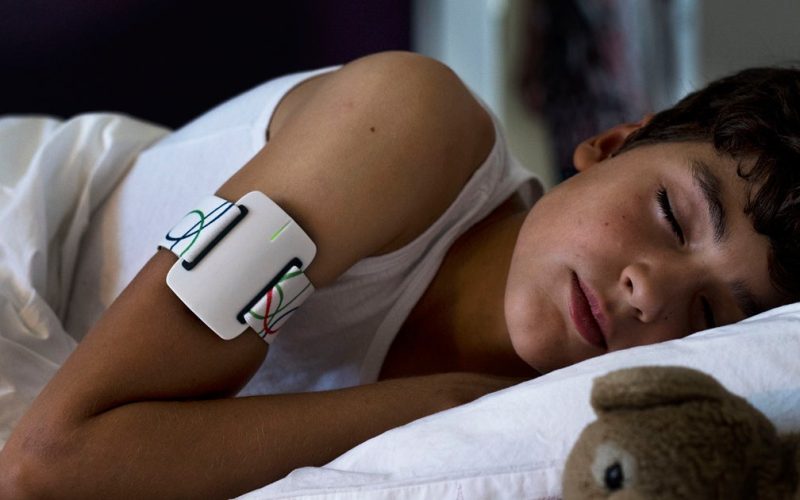A smart system that alerts epileptic seizures in time. Several collaborating parties (TeleConsortium) contributed, among other things, to the development of NightWatch, a wearable epilepsy alarm system for seizures at night that has been on the market since 2018. A large-scale study in children’s homes examined NightWatch’s operation, effectiveness and cost-effectiveness. Final measurements were completed this month.
Despite specialized treatment, one in three people with epilepsy still suffer from seizures. These occur unexpectedly and lead to loss of control. This can create dangerous and sometimes even life-threatening situations. Proximity to a loved one can help reduce the risks of a seizure. But at night, a seizure often goes undetected. That is why it is important to be able to deploy reliable epilepsy alarm systems.
NightWatch is a bracelet that measures seizures using sensors for heart rate and movement. Previous research showed good efficacy in adults. The PROMISE study examined NightWatch in 60 children with high-risk epilepsy and nocturnal seizures. “We looked at the efficacy of NightWatch in the home setting and examined parents’ user experiences,” says Anouk van Westrhenen, physician-researcher at UMC Utrecht. “We also took stock of the costs and benefits of NightWatch.” The PROMISE study came about thanks to a grant from Health Holland and EpilepsieNL. “The unique thing about the PROMISE study is that we measure for a long period of time at families’ homes,” says SEIN neurologist Roland Thijs. “Most studies so far took place in the hospital and often only for a short time.” This month the last participant completed the study. Interim calculations showed good results of NightWatch in children, comparable to adults. Final results are expected in the third quarter of 2021.
The TeleConsortium is a collaboration between the Academic Center for Epileptology Kempenhaeghe/Maastricht, SEIN, expertise center for epilepsy and sleep medicine, the University Medical Center Utrecht (UMC Utrecht), the Technical University Eindhoven, Hobo Heeze BV, Pontes Medical, EpilepsieNL, LivAssured, CLB and patient advocacy organizations foundation Dravetsyndrome and foundation ZIE.
More information about the Nightwatch
